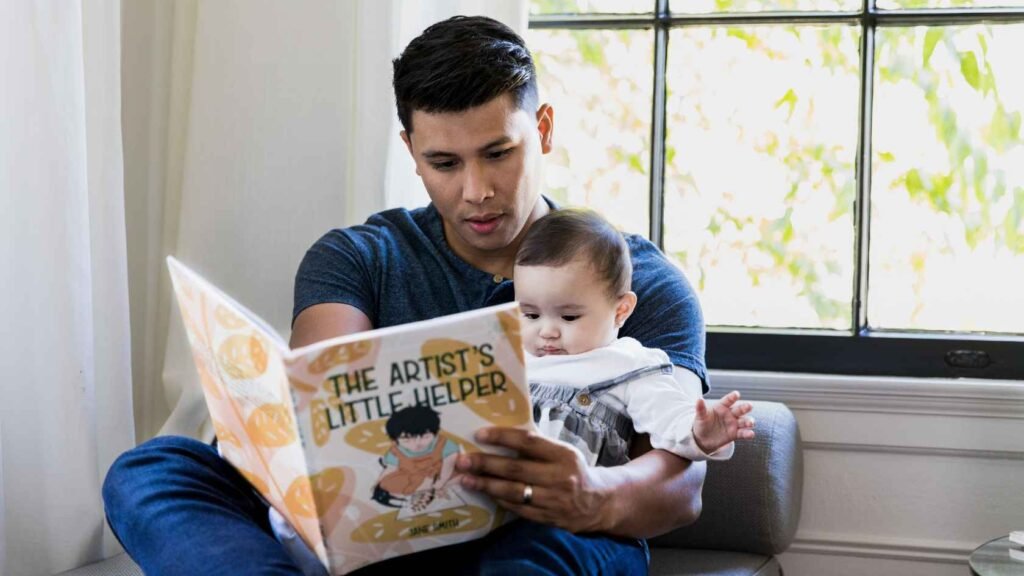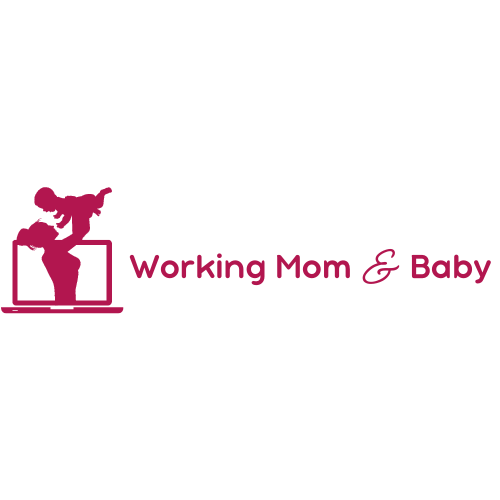Do you often feel like time is slipping away, juggling work and parenthood?
As a busy working parent, it’s natural to worry about how to connect with your baby in the limited time you have.
The good news is that building a strong bond doesn’t require hours of free time. What matters most are the small moments you experience each day.
It can be through eye contact, gentle touch, or simply talking to your baby.
Here’s a guide on how to interact with babies in simple ways that help you bond deeply, even on a tight schedule.
1. Make Eye Contact and Smile
One of the easiest and most effective ways to connect with your baby is through eye contact and smiling.
Babies are drawn to faces and expressions, and making eye contact helps them feel secure.
Why It’s Important
Eye contact helps babies recognize their parents and builds trust. It helps them feel secure, knowing they are loved and protected.
How to Do It
Simply look into your baby’s eyes during feeding, changing, or playtime.
Pair your gaze with a gentle smile or soothing words.
2. Talk to Your Baby Throughout the Day

Talking to your baby may feel one-sided at first. But it’s incredibly important for their development and your bond.
Babies absorb language from the day they are born. And your voice is the sound they love the most.
Why It’s Important
Talking helps babies develop language skills and gives them a sense of comfort.
It also makes them feel included in daily activities.
How to Do It
Narrate what you’re doing, whether you’re feeding, bathing, or dressing them.
Use simple, clear words. For example, “Let’s put on your socks. Don’t they feel nice and cozy?”
3. Skin-to-skin Contact
Skin-to-skin contact isn’t just for newborns. It can be helpful during any phase of infancy.
Holding your baby close, especially against your bare skin, can calm and bond you.
Why It’s Important
When you hold your baby, oxytocin (known as the ‘love hormone’) is released. It fosters a sense of comfort and security.
How to Do It
During feeding or quiet time, hold your baby close to your chest.
You can also enjoy skin-to-skin moments after a bath or during nap time.
4. Play Simple Games and Sing Songs
Even as young as a few weeks old, babies love interactive play and hearing their parents’ voices.
Simple games and songs can make your baby feel engaged and happy.
Why It’s Important
Playtime stimulates your baby’s brain, helping with sensory development and emotional connection.
How to Do It
Play peek-a-boo, gently clap your baby’s hands together, or sing nursery rhymes.
These simple activities provide endless joy for your baby. It also helps them understand patterns of interaction.
5. Read to Your Baby

You can start reading to your baby at any age.
Books can capture your baby’s attention, especially if they have colorful pictures or soft textures. They can help build their language skills, too.
Why It’s Important
Reading introduces babies to sounds, rhythms, and visual stimulation. All are contributing to their cognitive and emotional development.
How to Do It
Choose simple board books with bright illustrations. Point to pictures and name objects as you read.
Your baby may not understand the words yet, but they will love the sound of your voice.
6. Respond to Baby’s Cues
Babies communicate with their caregivers through cues like crying, cooing, or reaching out.
Responding to these signals shows your baby that they are heard and understood. It’s the key to building trust.
Why It’s Important
Responding to your baby’s needs builds emotional security and strengthens the parent-child bond.
How to Do It
When your baby cries, pick them up and soothe them.
If they coo or babble, talk back to them. Acknowledge their sounds and actions to let them know you’re tuned in.
7. Gentle Touch and Massage

Babies thrive on gentle touch, which can calm them and help them feel safe.
A soft, loving touch reassures your baby and promotes a sense of well-being.
Why It’s Important
A gentle touch helps a baby’s nervous system. It promotes relaxation and better sleep.
How to Do It
Try a gentle massage after bath time or while your baby is resting.
Use soft strokes on their arms, legs, and back, and talk or sing softly as you do it.
Start Interacting with Your Baby in Simple Ways
You don’t need hours of free time to bond with your baby.
Small, simple interactions go a long way in strengthening your connection. It can be eye contact, gentle touch, or a quick game of peek-a-boo.
These moments remind your baby that you’re there for them, and they can feel safe and loved.
How do you enjoy bonding with your baby? Share your favorite moments in the comments below.
Explore more tips on balancing work and parenting at workingmomandbaby.com.

